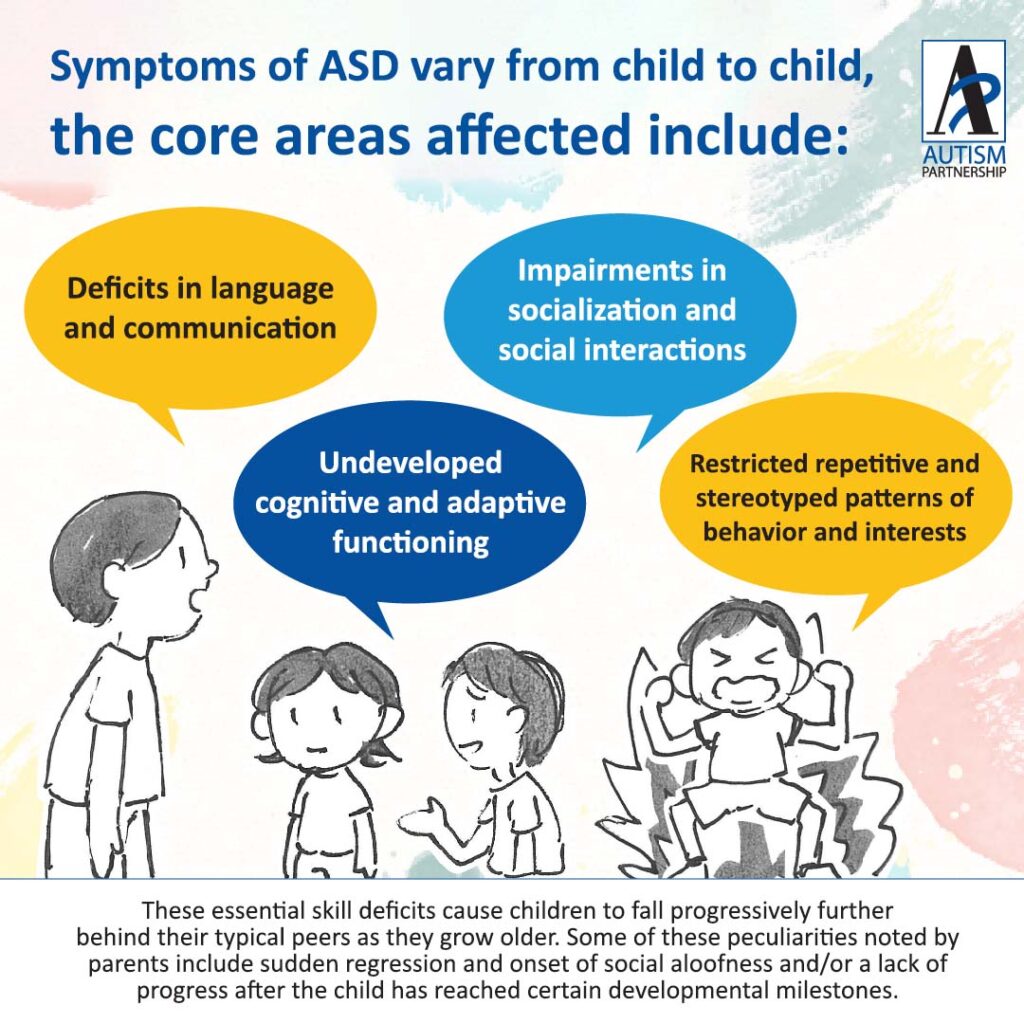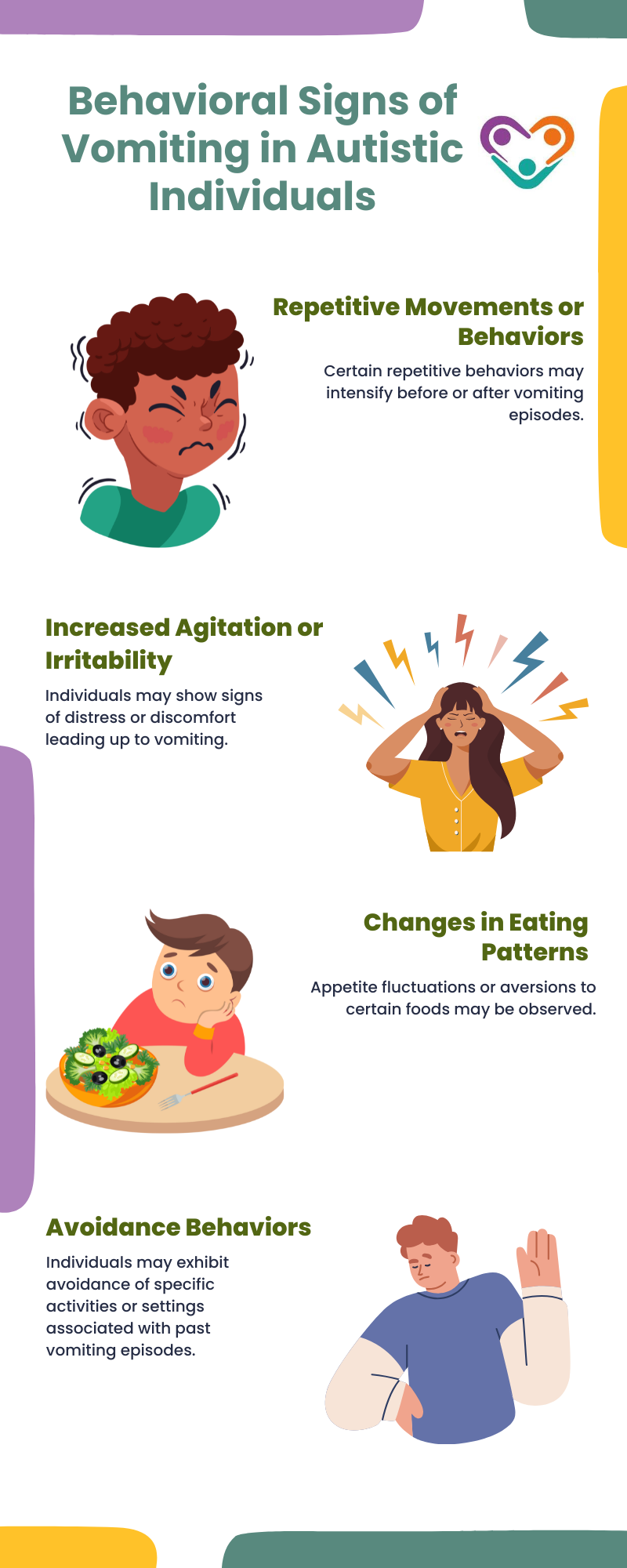Positives of guided interaction guided by an Autism Therapist
Positives of guided interaction guided by an Autism Therapist
Blog Article
Secret Indicators and Signs And Symptoms to Identify in People With Behavioral Autism
When you encounter a person with behavior autism, acknowledging essential indications and symptoms is necessary. Furthermore, sensory level of sensitivities can lead to overwhelming experiences.
Obstacles in Social Communications
When you connect with somebody on the autism spectrum, you may discover they struggle with social hints and communication. These difficulties can make social interactions really feel frustrating for them. You may see them staying clear of eye get in touch with or standing also close or too away during discussions, which can create misunderstandings. They could not choose up on body movement or facial expressions, making it harder for them to determine how others are really feeling.
Furthermore, you might find that they like regimens and familiar settings, which can restrict their readiness to engage in brand-new social situations. They may chat concerning their interests in excellent information without noticing if you're interested when they do engage. This can result in discriminatory discussions that leave you feeling detached. Comprehending these obstacles can help you approach interactions with compassion and perseverance, cultivating a more comfortable environment for both of you.
Trouble With Verbal and Non-Verbal Interaction

Non-verbal communication can be a lot more challenging. You could see an absence of eye get in touch with or minimal use motions, which can make communications feel awkward. Faces may not always straighten with the discussion, causing confusion regarding their sensations. Acknowledging these indicators is necessary, as it helps you much better assistance and engage with people on the autism range. By understanding their interaction challenges, you can promote much more meaningful connections and give a more helpful setting.
Recurring Behaviors and Routines
Interaction obstacles typically go along with various other signs of autism, such as recurring actions and a solid preference for routines. You may see that people with autism often engage in particular, repeated actions, like hand-flapping, rocking, or repeating phrases. These habits can offer comfort and a sense of control in an often overwhelming world.
Routines are equally important; many individuals grow when they comply with a structured schedule. You might locate that adjustments to these regimens can cause considerable distress. If they have a daily ritual of consuming morning meal at a certain time or adhering to a specific path to institution, any disruption can create anxiousness.
Acknowledging these patterns helps you recognize their actions and provide support. By accommodating their demand for routine and allowing repeated actions, you can develop a much more comfortable setting that alleviates their challenges.
Sensory Level Of Sensitivities

Common Sensory Triggers
Sensory level of sensitivities can considerably affect every day life for individuals with autism, as certain stimulations often activate frustrating reactions. Typical sensory triggers consist of loud sounds, bright lights, and strong scents. You could notice that unexpected noises, like alarms or sirens, trigger stress and anxiety or distress. In a similar way, fluorescent lighting in stores can feel uncomfortable and severe. Appearances can additionally play a significant role; rough materials or specific food appearances might be excruciating for you. In addition, crowded areas can bewilder your detects, making it tough to concentrate or loosen up. Understanding these triggers can help you manage your environment better. By recognizing what influences you, you can take actions to decrease pain and boost your daily experiences.
Behavior Actions Described
Recognizing your behavioral actions to sensory sensitivities is necessary, as they typically expose exactly how you connect with the globe. You might additionally find yourself looking for specific sensory experiences, like deep pressure or peaceful settings, to help ground yourself. Recognizing these patterns assists you comprehend your demands better and can assist how you connect them to others.
Coping Techniques Overview
Identifying your sensory level of sensitivities is just the initial step; currently it's time to discover coping strategies that can assist you handle those experiences properly. Start by creating a sensory toolkit tailored to your needs. This might include noise-canceling earphones, fidget playthings, or soothing aromas. Developing an organized regimen can additionally provide predictability, reducing anxiety around sensory overload. When you feel overwhelmed, take breaks in a peaceful area to regroup. Exercising mindfulness i thought about this strategies such as deep breathing can aid ground you in the minute. In addition, connect your requirements with those around you; having helpful family and friends can make a big difference. Remember, finding what functions ideal for you might take some time, so be patient and open to trying brand-new strategies.
Restricted Interests and Emphasis
While lots of individuals establish a large range of passions, those with autism usually demonstrate restricted passions and an intense concentrate on particular topics. You may discover that a person with autism can spend hours diving into their favorite topic, whether it's a particular kind of train, a particular movie, or a clinical concept. This extreme focus isn't simply a hobby; it can end up being a central component of their identity and social communications.
You may discover that discussions rotate around these interests, and they may have a hard time to engage in broader topics. By comprehending and recognizing these limited interests, you can promote a helpful setting where they really feel valued and understood, enabling for more significant links and communications.
Psychological Guideline Problems
Individuals with autism often face obstacles in psychological guideline, which can be influenced by their intense concentrate on details passions. You may discover that when an individual is deeply involved in a favored activity, they can experience solid feelings, whether enjoyment or aggravation. This intensity occasionally makes it tough for them to move gears or handle their feelings when things do not go as prepared.

Variability in Developmental Turning Points
When it involves developmental milestones, you'll observe that people with autism often show a wide variety of irregularity. Some might strike milestones on schedule, while others may drag or progression at a various rate. For example, you might see a child master language skills but have problem with social interactions. This inconsistency can be confusing, as conventional you can try this out criteria don't always apply.
It's necessary to acknowledge that each individual's trip is special. Observing these patterns can help you recognize their toughness and requires better.
Regularly Asked Concerns
How Is Autism Detected in Children and Grownups?
To identify autism in children and grownups, experts evaluate habits, communication abilities, and social interactions. They often utilize standardized examinations, interviews, and monitorings to identify if a specific satisfies the standards for autism spectrum problem.
Are There Various Types of Autism Spectrum Disorders?
Yes, there are various types of autism range problems, including Asperger's disorder and pervasive developmental disorder-not or else defined. Each type differs in severity and attributes, so recognizing these distinctions can aid you better support people with autism.
What Treatments Are Efficient for People With Autism?
When considering effective treatments for people with autism, you'll find Visit Website choices like Applied Habits Evaluation, speech treatment, and occupational therapy. Each technique can aid improve communication, social skills, and everyday operating customized to individual needs.
Can People With Autism Lead Independent Lives?
Yes, individuals with autism can lead independent lives. With the best support, skills training, and sources, you can aid them create self-sufficiency, take care of daily tasks, and flourish in different atmospheres, cultivating their freedom.
Just How Can Family Members Support Loved Ones With Autism?
You can support your enjoyed ones with autism by producing an organized atmosphere, motivating their passions, exercising persistence, promoting interaction, and advertising social abilities. Celebrate their accomplishments, no matter exactly how little, and build a supportive community.
Although many individuals on the autism range can recognize and make use of language, they usually encounter substantial difficulties with both non-verbal and verbal communication. Identifying these indicators is necessary, as it assists you much better support and involve with people on the autism spectrum. You might see that people with autism commonly engage in specific, repetitive activities, like hand-flapping, rocking, or repeating expressions.Sensory sensitivities can substantially affect daily life for people with autism, as specific stimuli often cause frustrating reactions.When it comes to developing turning points, you'll discover that people with autism commonly show a wide variety of variability.
Report this page